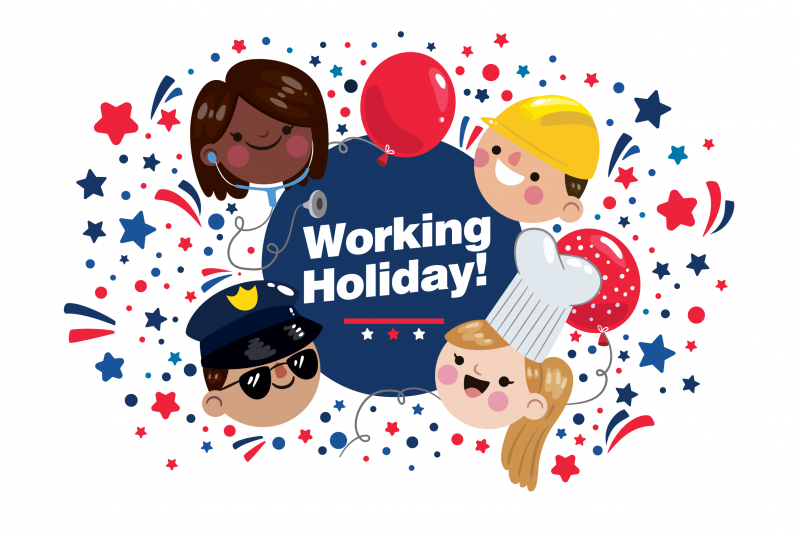Introduction

Working Holiday
Free to use
Holidays are the days an employee is entitled to abstain from working for his employer. Holidays, as far as work goes, come in many forms; there are mandatory holidays, national holidays, religion-specific holidays, as well as leaves.
Depending on the country and the job, these holidays may vary. For example, a common holiday is the first day of the year; however that does not apply to everyone as some people still need to work on that day (fe police officers, firefighters, telecommunication technicians). It should be highlighted, there is a bare minimum of holidays constituted that employers cannot ignore as they will face penalties.
National holidays, as well as religious holidays, depend on the country. For example, in Greece there is a national holiday on the 25th of March, in remembrance of the revolt against the Ottoman Empire. While in Sweden, the 6th of June is considered a national holiday in remembrance ofthe end of the Danish-ruled Kalmar Union. Other holidays include paid leaves, where the employee requests for some time-off on his own, maternity leaves, applicable to women that have recently been in labour, sick leaves, for unexpected events where the employee cannot go to work due to medical reasons, and finally (depending on the country) some weekdays that you do not work (usually Saturdays and Sundays).
Task

In this task you will find out about national holidays, and religion-specific holidays that you are entitled for in the country you are located. Have a look in Exercise 1 as it will help you identify your country’s specific public holidays.
The focus here is to gain a better understanding of the days you are expected to work and the days you are not. This should help you plan in advance what to do with those days. Please do bear in mind that in some jobs there are deadlines that must be met; those deadlines usually do not take into account some holidays, meaning you should organise your schedule accordingly so that you will deliver in time.
While holidays mean you do not have to go to work, they do not mean that no work should or could be done. An employer has no right to ask from an employee to work during his holidays; he may require them though to meet any deadlines and in some cases having a holiday does not justify any shortcomings. So, knowing and planning in advance can help you become more efficient in your work!
Process
After you are done reading them, take a calendar and find the days that you know for sure that will be holidays; like National or religion holidays. Put a mark on them. Keep in mind that you are entitled to some paid leave days but those are not set and are agreed upon with your employer. You could keep in mind some dates, but it is not guaranteed that you will be granted the exact same days you want.
After taking off those days you should have a clear picture of the days you are required to report to work. What you do during your holidays is entirely up to you, but you should try to keep them as work-free as possible since those are the only days that you can fully rest!
Conclusion
This is it! By now you should have learned all there is to know about holidays. Do not forget to always check with your employer to see if you got it right, so that you can be prepared for those days and not miss any deadlines!




